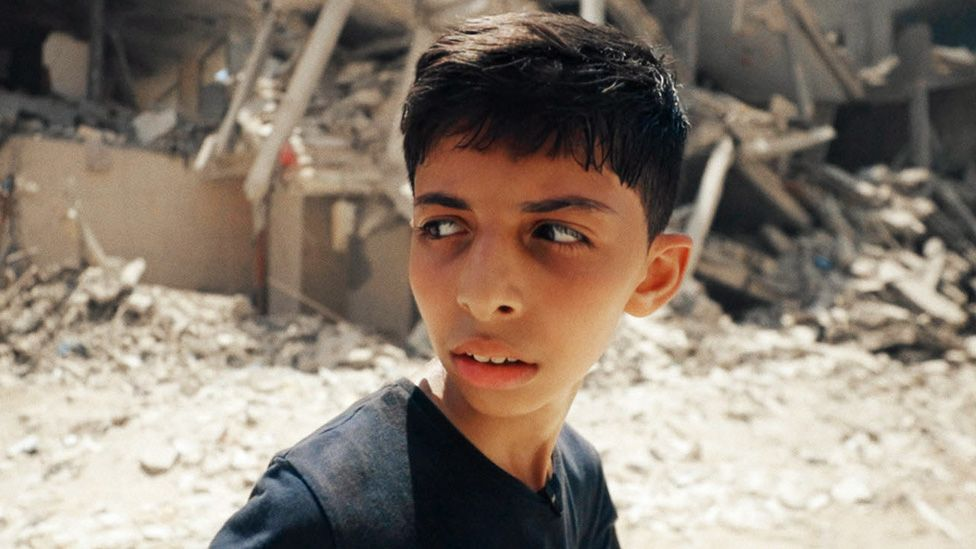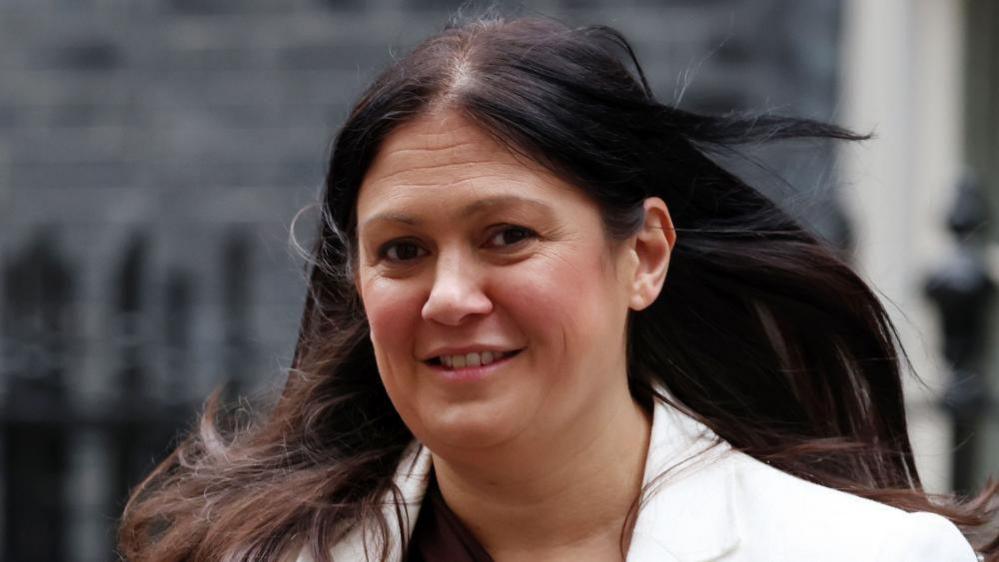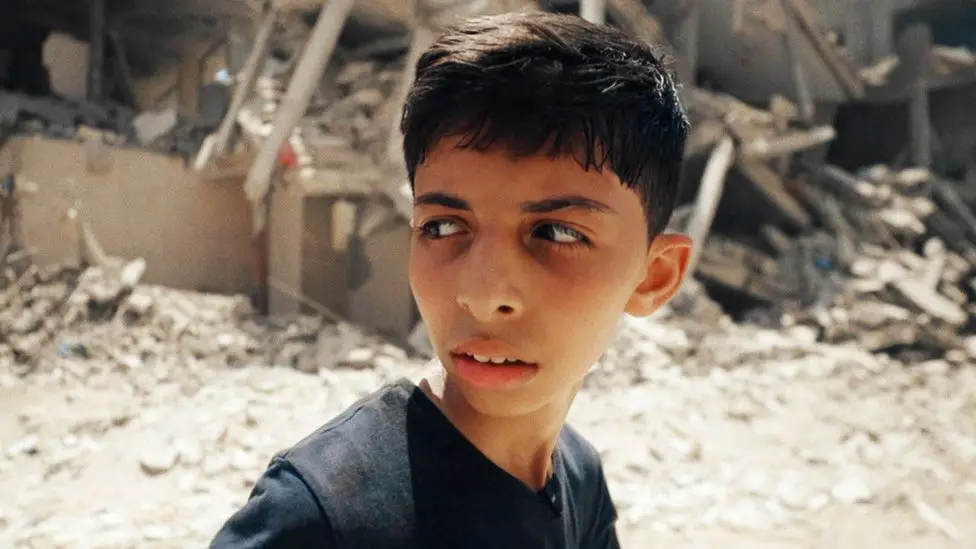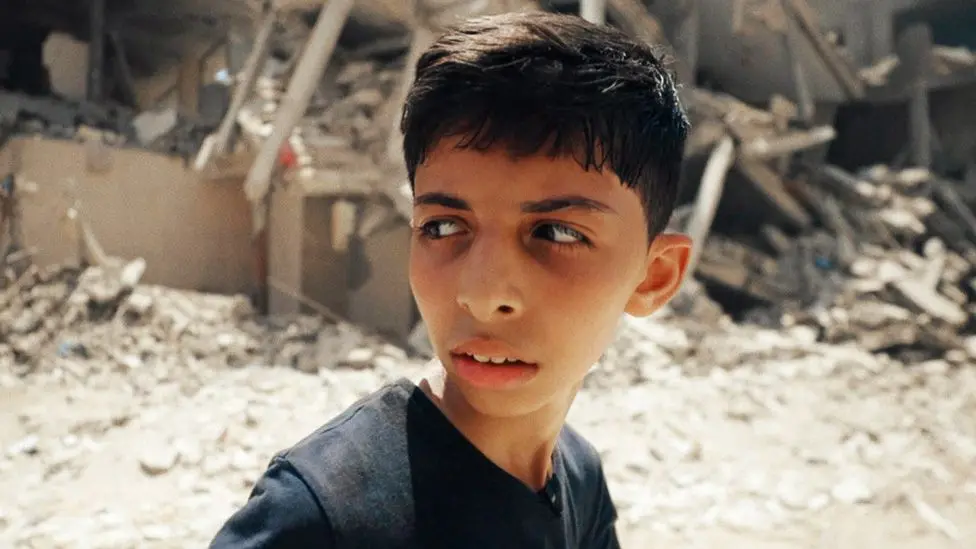BBC Gaza documentary a 'serious' breach of rules, Ofcom says

- Published
The BBC committed a "serious breach" of broadcasting rules by failing to disclose that the narrator of a documentary about Gaza was the son of a Hamas official, UK media regulator Ofcom has ruled.
An Ofcom investigation into Gaza: How to Survive a Warzone has concluded that the programme was "materially misleading".
The BBC's director general has previously apologised, saying there had been "a significant failing in relation to accuracy".
Ofcom has ordered the BBC to broadcast a prime-time statement about its conclusions.
"As this represents a serious breach of our rules, we are directing the BBC to broadcast a statement of our findings against it on BBC2 at 21:00, with a date to be confirmed," it said.
It is the first time the BBC has received a sanction from Ofcom and been ordered to make an on-air apology since 2009.

The documentary centred on the 13-year-old son of Hamas's deputy minister of agriculture
The documentary centred on a 13-year-old son of Hamas's deputy minister of agriculture.
Hamas is proscribed as a terrorist organisation by the UK, Israel and others.
Ofcom's statement said: "Our investigation found that the programme's failure to disclose that the narrator's father held a position in the Hamas-run administration was materially misleading.
"It meant that the audience did not have critical information which may have been highly relevant to their assessment of the narrator and the information he provided.
"Trust is at the heart of the relationship between a broadcaster and its audience, particularly for a public service broadcaster such as the BBC.
"This failing had the potential to erode the significantly high levels of trust that audiences would have placed in a BBC factual programme about the Israel-Gaza war."
Misleading the audience is "among the most serious" breaches that can be committed by a broadcaster, it said.
The on-air apology ordered by Ofcom is the regulator's first sanction on the BBC since the scandal over Jonathan Ross and Russell Brand's comments to actor Andrew Sachs on Radio 2 in 2009.
BBC accepts ruling 'in full'
The documentary was pulled from iPlayer in February after the boy's family links emerged.
In July, an internal review carried out by the BBC's director of editorial complaints and reviews, Peter Johnston, found that the programme breached the corporation's editorial guidelines on accuracy.
A BBC spokesperson said: "The Ofcom ruling is in line with the findings of Peter Johnston's review, that there was a significant failing in the documentary in relation to the BBC's Editorial Guidelines on accuracy, which reflects Rule 2.2 of Ofcom's Broadcasting Code.
"We have apologised for this and we accept Ofcom's decision in full. We will comply with the sanction as soon as the date and wording are finalised."
The BBC told the Ofcom investigation it had "publicly acknowledged a serious breach in its own editorial standards", and had "undertaken to implement a series of measures to ensure future compliance with its own standards and those of the Ofcom Code".
A spokesperson for the Department for Culture, Media and Sport said: "It is right that Ofcom has looked into this. It is critical for trust in the BBC that appropriate action is taken on these findings to make sure this never happens again."
'Very problematic' omission - Ofcom
Ofcom's report said the narrator "occupied a unique and prominent position in the programme, acting as a trusted guide to viewers".
"Given the highly contested context of the Israel-Gaza war and the narrator's central role as the editorial voice of the programme and trusted guide to the viewer, we considered the omission of important information about his familial connection to the Hamas administration to be very problematic."
It added: "Had viewers been made aware of this information, they may have evaluated the commentary provided by the narrator in a substantially different manner."
The programme was made for the BBC by an independent production company, HOYO Films.
In July, the BBC's review concluded that HOYO Films bore most of the responsibility for the failure to make clear the boy's family links, but that the BBC bore some responsibility and should have done more in its oversight.
However, Ofcom's report said it "is clear that the BBC held editorial responsibility for the programme as broadcast".
It added: "We considered the BBC's failure to carry out rigorous compliance checks and provide adequate editorial oversight of a documentary detailing the experiences of Palestinian people living through a highly contentious conflict resulted in a serious omission, which had the clear potential to mislead viewers."
BBC review found 'no family influence'
The BBC's internal review found that three members of the production company knew of the father's position in the Hamas-run government in Gaza, but no-one within the BBC knew this prior to broadcast.
However, the BBC's report criticised the corporation's own team for not being "sufficiently proactive" with initial editorial checks, and for a "lack of critical oversight of unanswered or partially answered questions" ahead of broadcast.
The review also said it had seen no evidence "to support the suggestion that the narrator's father or family influenced the content of the programme in any way".
HOYO Films said it takes Ofcom's findings "extremely seriously and [we] apologise for the mistake that resulted in a breach of its code".
"We are pleased that the ruling was in line with Peter Johnston's review, which found that there was no inappropriate influence on the content by any third party, it was impartial, fairly edited and all payments were legitimate."
The documentary "remains a vital account" of the Gaza conflict, and the contributors "deserve to have their voices heard", the statement added.
Related topics
- Published14 July

- Published5 July

- Published28 February

- Published28 February
